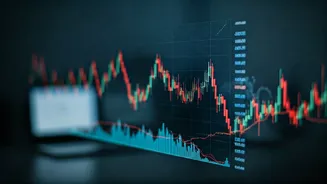Waves in Spacetime
The prediction of a black hole explosion is rooted in the analysis of gravitational waves. These waves, ripples in the fabric of spacetime, were detected
and provided crucial data. Scientists studied these waves, which originate from the interactions of extremely dense objects like black holes. The detection of these waves has allowed researchers to gain insights into the violent processes occurring in the cosmos, from collisions to the eventual explosions of celestial bodies. Furthermore, the examination of gravitational wave patterns provides astronomers with essential data needed to refine and validate models of black hole behavior. The detection of these waves provides us with more information on the complex cosmic environment surrounding black holes.
Exploding Black Holes?
The idea of a black hole exploding might seem strange. Typically, black holes are considered to be objects that consume everything. But the term "exploding" in this context describes a process by which a black hole might violently release energy. This energy release could come through Hawking radiation, a theorized process by which black holes emit particles. Alternatively, the explosion could be due to an energetic event around the black hole or through the eventual evaporation. Current research suggests the black hole’s environment and its mass play key roles in determining the likelihood and character of an explosion. Furthermore, scientists are currently trying to analyze the characteristics of the explosion and how the surrounding universe will respond.
The Next Decade
The astronomical community predicts a high probability of witnessing a black hole explosion within the next decade. This prediction is based on current astronomical data and models. The timeframe indicates that researchers might have a good chance of observing this event. This expectation also puts increased pressure on the scientific community to develop or refine the instruments and detection methods needed to monitor the black hole. The scientific community, thus, prepares for the possibility of a ground-breaking discovery that could shift the understandings of the universe's evolution and dynamics. The scientists are thus preparing for what can turn out to be a significant step in our comprehension of the cosmos.
What to Expect?
If a black hole explosion occurs, it could bring unprecedented insight into fundamental physics. Astronomers will likely observe bursts of high-energy particles. Depending on the black hole's location and characteristics, it could illuminate areas previously hidden from view, and also offer unique observations. This event would represent a significant opportunity to observe the behavior of matter under extreme conditions, where effects like Hawking radiation become measurable. It is also a possible moment where astronomers might witness the interactions between the black hole and its environment, providing insight into the structure of galaxies and the evolution of stars. This could also challenge existing theoretical models and inspire new ones.
Future Research
The prediction of a black hole explosion intensifies the urgency for continued study in astrophysics and cosmology. Astronomers are developing new techniques to study gravitational waves and refine models of black hole behavior. Telescopes and observatories are also being improved to better observe and analyze such events, including those within the next decade. Furthermore, the research emphasizes the necessity for international cooperation and data sharing among scientific institutions to gather all the details. By preparing for and anticipating the possibility of an explosion, scientists hope to unravel the mysteries of black holes and better comprehend the universe's secrets. This endeavor could result in discoveries that transform our understanding of the cosmos.













